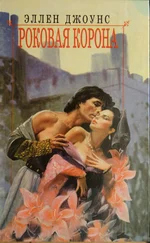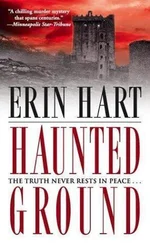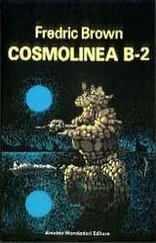Эллен Глазгоу - Barren Ground
Здесь есть возможность читать онлайн «Эллен Глазгоу - Barren Ground» весь текст электронной книги совершенно бесплатно (целиком полную версию без сокращений). В некоторых случаях можно слушать аудио, скачать через торрент в формате fb2 и присутствует краткое содержание. Жанр: Классическая проза, на английском языке. Описание произведения, (предисловие) а так же отзывы посетителей доступны на портале библиотеки ЛибКат.
- Название:Barren Ground
- Автор:
- Жанр:
- Год:неизвестен
- ISBN:нет данных
- Рейтинг книги:3 / 5. Голосов: 1
-
Избранное:Добавить в избранное
- Отзывы:
-
Ваша оценка:
- 60
- 1
- 2
- 3
- 4
- 5
Barren Ground: краткое содержание, описание и аннотация
Предлагаем к чтению аннотацию, описание, краткое содержание или предисловие (зависит от того, что написал сам автор книги «Barren Ground»). Если вы не нашли необходимую информацию о книге — напишите в комментариях, мы постараемся отыскать её.
Barren Ground — читать онлайн бесплатно полную книгу (весь текст) целиком
Ниже представлен текст книги, разбитый по страницам. Система сохранения места последней прочитанной страницы, позволяет с удобством читать онлайн бесплатно книгу «Barren Ground», без необходимости каждый раз заново искать на чём Вы остановились. Поставьте закладку, и сможете в любой момент перейти на страницу, на которой закончили чтение.
Интервал:
Закладка:
With the end of free labour and the beginning of the tenant system, authority passed from the country to the towns. The old men stayed by the farms, and their daughters withered dutifully beside them; but the sons of the good people drifted away to the city, where they assumed control of democracy as well as of the political machine which has made democracy safe for politics. An era changed, not rudely, but as eras do change so often, uncomfortably. Power, defying Jeffersonian theory and adopting Jeffersonian policy, stole again from the few to the many. For the good people, conforming to the logic of history, proceeded immediately to enact their preferences, prejudices, habits, and inhibitions into the laws of the state.
At Pedlar's Mill, where the old wooden mill, built a hundred years before by the first miller Pedlar, was now a picturesque ruin, a few stalwart farmers of Scotch-Irish descent rose above the improvident crowd of white and black tenants, like native pines above the shallow wash of the broomsedge. These surviving landowners were obscure branches of the great Scotch-Irish families of the upper Valley of Virginia. Detached from the parent tree and driven by chance winds out of the highlands, they had rooted afresh in the warmer soil of the low country, where they had conquered the land not by force, but by virtue of the emphatic argument that lies in fortitude.
James Ellgood, whose mother was a McNab, owned Green Acres, the flourishing stock farm on the other side of the railroad. It is true that an uncle in the far West had left him a small fortune, and for five years he had put more into the soil than he had got out of it. But in the end Green Acres had repaid him many times, which proved, as old Matthew, who was a bit of a philosopher, pointed out, that "it wa'n't the land that was wrong, but the way you had treated it."
On the near side of the station, secluded behind a barricade of what people called the back roads, which were strangled in mud from November to June, stood Five Oaks, the ruined farm of the Greylocks. Though the place was still held insecurely in the loose clutches of old Doctor Greylock, who resembled an inebriated Covenanter, the abandoned acres were rapidly growing up in sumach, sassafras, and fife-everlasting. The doctor had been a man of parts and rural prominence in his day; but the land and scarcity of labour had worn on his nerves, and he was now slowly drinking himself to death, attended, beyond the social shadow-line, by an anonymous brood of mulatto offspring.
Adjoining Five Oaks, and running slightly in front of it on one side, with a long whitewashed house situated a stone's throw from the main road, there was Old Farm, which belonged to Joshua Oakley and Eudora Abernethy, his wife. The Oakleys, as the saying ran in the neighbourhood, were "land poor." They owned a thousand acres of scrub pine, scrub oak, and broomsedge, where a single cultivated corner was like a solitary island in some chaotic sea.
Early in the nineteenth century, John Calvin Abernethy, a retired missionary from India and Ceylon, came from the upper Valley into the region of the Shenandoah, with a neat Scotch-Irish inheritance in his pocket. His reputation, as historians remark, had preceded him; and his subsequent career proved that he was not only an eloquent preacher of the Gospel, but a true explorer of the spirit as well, the last of those great Presbyterian romantics whose faith ventured on perilous metaphysical seas in the ark of the Solemn League and Covenant. Since there was no canny bargain to be driven, at the moment, in the Shenandoah Valley, John Abernethy regretfully left the highlands for the flat country, where he picked up presently, at a Dutch auction, the thousand acres of land and fifty slaves which had belonged to one William Golden Penner. One may charitably infer that the fifty slaves constituted a nice point in theology; but with ingenious Presbyterian logic and circumscribed Presbyterian imagination, John Calvin reconciled divine grace with a peculiar institution. The fifty slaves he sold farther south, and the price of black flesh he devoted to the redemption of black souls in the Congo. Dramatic, yet not altogether lacking in delicate irony. For he had observed in foreign fields that divine grace has strange gestures; and life, as even Presbyterians know, is without logic. To a thrifty theologian, bent on redemption with economy, there are few points of ethics too fine-spun for splitting. From which it must not be concluded that the first Virginian Abernethy was unworthy of his high calling. He was merely, like the rest of us, whether theologians or laymen, seasoned with the favourite fruit of his age. Though he might occasionally seek a compromise in simple matters of conduct, realizing the fall of man and the infirmity of human nature, where matters of doctrine were concerned his conscience was inflexible. His piety, running in a narrow groove, was deep and genuine; and he possessed sufficient Integrity, firmness, and frugality to protect his descendants from decay for at least three generations. A few years after he had settled near Pedlar's Mill, a small Presbyterian church, built of brick and whitewashed within and without, rose on the far side of the railroad, where it stands now at the gate of Green Acres. Conversion, which had begun as a vocation with John Calvin Abernethy, became a habit; and with the gradual running to seed of the Methodists in the community, the Presbyterian faith sprang up and blossomed like a Scotch thistle in barren ground.
In his long white house, encircled by the few cultivated fields in the midst of his still-virgin acres, John Calvin Abernethy lived with learning, prudence, and piety until he was not far from a hundred. He had but one son, for unlike the Scotch-Irish of the Valley, his race did not multiply. The son died in middle age, struck down by an oak he was felling, and his only child, a daughter, was reared patiently but sternly by her grandfather. When, in after years, this granddaughter, whose name was Eudora, fell a victim of one of those natural instincts which Presbyterian theology has damned but never wholly exterminated, and married a member of the "poor white" class, who had nothing more to recommend him than the eyes of a dumb poet and the head of a youthful John the Baptist, ()Id Abernethy blessed the marriage and avoided, as far as possible, the connection. Knowing the aptitude of the poor for futility, he employed his remaining years on earth in accumulating a comfortable inheritance for his great-grandchildren. When he was dead, his granddaughter's husband, young Joshua Oakley, worked hard, after the manner of his class, to lose everything that was left. He was a good man and a tireless labourer; but that destiny which dogs the footsteps of ineffectual spirits pursued him from the hour of his birth. His wife, Eudora, who resembled her grandfather, recovered promptly from the natural instinct, and revealed shortly afterwards signs of suppressed religious mania.
Of this union of the positive and the negative virtues, three children survived. Two of these were sons, Josiah and Rufus; the other was a daughter, Dorinda, the girl who, having thrown the orange shawl over her head, had come out of the store, and stood now with the snow in her face and her eager gaze on the road.
Chapter 2
She was a tall girl, not beautiful, scarcely pretty even according to the waxen type of the 'nineties; but there was a glow of expression, an April charm, in her face. Her eyes were her one memorable feature. Large, deep, radiant, they shone beneath her black lashes with a clear burning colour, as blue as the spring sky after rain. Above them her jutting eyebrows, very straight and thick, gave a brooding sombreness to her forehead, where her abundant hair was brushed back in a single dark wave. In repose her features were too stern, too decisive. Her nose, powdered with golden freckles, was a trifle square at the nostrils; her mouth, with its ripe, beestung lower lip, was wide and generous; the pointed curve of her chin revealed, perhaps, too much determination in its outward thrust. But the rich dark red in her cheeks lent vividness to her face, and when she smiled her eyes and mouth lighted up as if a lamp shone within. Against the sordid background of the store, her head in the brilliant shawl was like some exotic flower.
Читать дальшеИнтервал:
Закладка:
Похожие книги на «Barren Ground»
Представляем Вашему вниманию похожие книги на «Barren Ground» списком для выбора. Мы отобрали схожую по названию и смыслу литературу в надежде предоставить читателям больше вариантов отыскать новые, интересные, ещё непрочитанные произведения.
Обсуждение, отзывы о книге «Barren Ground» и просто собственные мнения читателей. Оставьте ваши комментарии, напишите, что Вы думаете о произведении, его смысле или главных героях. Укажите что конкретно понравилось, а что нет, и почему Вы так считаете.










![Эллен Дедженерес - Кроме шуток [Как полюбить себя, продать дуршлаг дорого, прокачать мозг с помощью телешоу и другие истории от Эллен Дедженерес] [litres]](/books/384873/ellen-dedzheneres-krome-shutok-kak-polyubit-sebya-p-thumb.webp)

